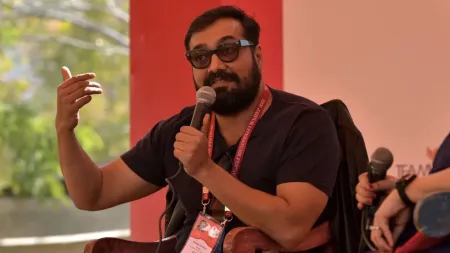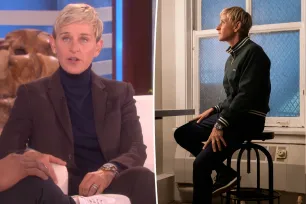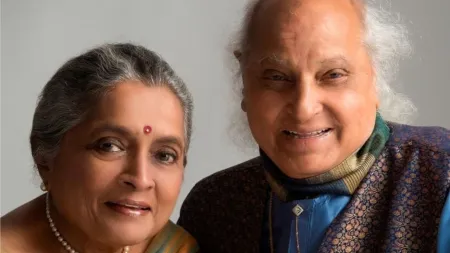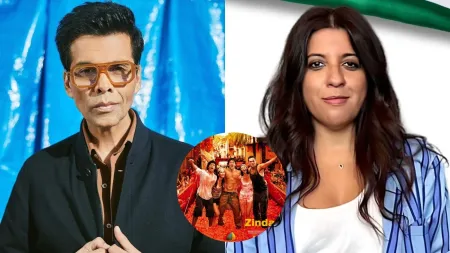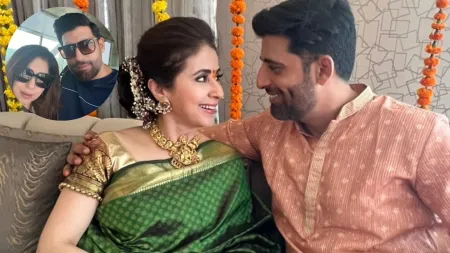Filmmaker Anurag Kashyap looked back at his first real hit, Dev D, and the frustrations that motivated him to make the film. He said that after his first few projects had either been stalled or outright banned, he decided to give the audience what they want, but with a twist. He directed an adaptation of the popular novel Devdas, but subverted most of its themes. The film outraged purists, but developed a cult following among the youth and became popular among the masses for its songs. But getting it off the ground wasn’t easy, and several female actors refused to even audition for the central roles of Paro and Chandramukhi, leading to a rather unfortunate incident.
In a live conversation at this year’s Marrakech International Film Festival, Anurag expressed his intense dislike for the source novel, as he walked down memory lane and shared anecdotes about many of his best-regarded films. “I was sitting with my friends and wondering, ‘How will this country let me be a filmmaker? They like love stories and they like songs. I’ll give them the biggest album they’ve ever seen; 19 songs!'”

 Abhay Deol in film Dev D. (Express archive photo)
Abhay Deol in film Dev D. (Express archive photo)
He continued, “India’s favourite love story is a book called Devdas, which I think is a terrible, terrible book, made into 20 films. It’s a very bad book, written by a great author who wrote it when he was 19. It was his first book, but somehow, it became his most popular. His personal life story was more interesting, so I borrowed more from his personal story, and picked up contemporary issues for Dev D.”
Also read – Abhay Deol says Anurag Kashyap ‘didn’t direct me at all’ on Dev.D, claims he came up with idea for the film: ‘It wasn’t like I was even asking him’
Anurag said that considering his track record, it wasn’t easy to get people on board. “I made the two women the protagonists of the film, and I didn’t hold back on the language or anything. Girls refused to audition for the film when they read the script. I got slapped by one actress’ boyfriend, who said, ‘How dare you send the script to my girlfriend?’. I was like, ‘Okay, sorry’. My producer threw the script down and called it vulgar. It actually got made because of my producer’s wife, who loved it.”
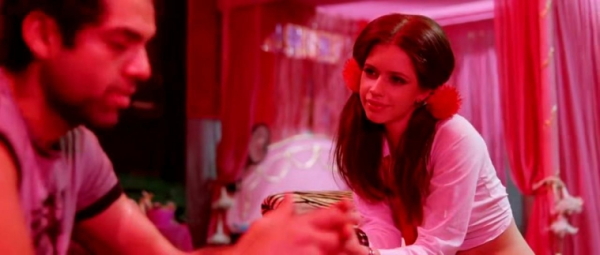 Abhay Deol and Kalki Koechlin in Anurag Kashyap’s Dev.D.
Abhay Deol and Kalki Koechlin in Anurag Kashyap’s Dev.D.
Explaining all the subversion that he packed into the classic story, Anurag said, “I took the three characters of Devdas, and subverted every expectation that the audience might have. What really shocked people was that the two female characters in the most misogynistic book had agency. They had more agency than the guy; the guy had nothing. I had women fighting for the film, standing by me, but men told me that I’m spoiling the culture of the country. There was a two-way fight… I changed the famous ending of Devdas, because the book thrives on creating empathy for this despicable character, who dies, so you’re supposed to feel sad. I said, ‘I’m not going to kill him’.
Read more – Dev D vs Devdas: Anurag Kashyap’s adaptation respected Paro and Chandramukhi in a way that Sanjay Leela Bhansali completely missed
Anurag said that the film’s success was surprising, because he had envisioned it in a state of anger. In the past, Anurag and the film’s lead actor, Abhay Deol, have had disagreements over who came up with the idea of Dev D. While Abhay has said that he approached Anurag to direct the film, Anurag has accused Abhay of being difficult to work with. He has since said that they’ve spoken privately about the matter as well. The female leads in the film were played by Kalki Koechlin and Mahie Gill.
Click for more updates and latest Bollywood news along with Entertainment updates. Also get latest news and top headlines from India and around the world at The Indian Express.
Disclaimer: The copyright of this article belongs to the original author. Reposting this article is solely for the purpose of information dissemination and does not constitute any investment advice. If there is any infringement, please contact us immediately. We will make corrections or deletions as necessary. Thank you.
